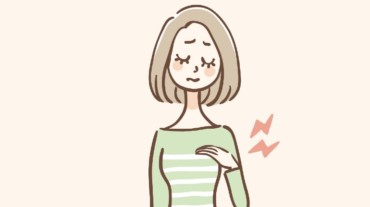Chat with ![]()

Chat with ![]()


As Aunt Flo brings her baggage each month, she brings the notorious symptoms of PMS too. For the uninitiated, PMS is premenstrual syndrome, an overwhelming state that brings the craziest out of a woman when she’s about to get her periods. All this because of some hormonal and chemical locha inside our body. Sometimes, these symptoms of PMS weigh so heavily on us that they may interfere with our regular functioning. But what really goes inside us is what we’re curious about!
To know more about the hormonal fluctuations and mood swings that come right before our periods, HealthShots spoke to Dr Tanveer Aujla, Senior Consultant Obstetrician & Gynaecologist, Motherhood Hospital, Noida.
“A person may detect when their period is due in a number of ways. Premenstrual syndrome is a collection of physical and emotional symptoms that many women experience when their hormone levels drop (PMS). PMS affects a big percentage of women before and during the start of their menstrual cycle,” says Aujla
Dr Aujla says, “PMS can cause stomach bloating, cramps, painful or swollen breasts, back discomfort, pimples or acne, sleeping more or less than usual, headaches, and a variety of other physical symptoms. Irritability, anxiety, weariness, food cravings, difficulties focusing, feelings of melancholy or apathy, sobbing episodes, or furious outbursts are all examples of emotional symptoms.

PMS symptoms normally appear 5 days before a period. The drop in estrogen and progesterone hormones triggers the symptoms of PMS. These hormones going haywire may cause excessive cramps, bad mood swings, high blood flow etc. Prostaglandins, hormone-like substances in our body cause uterine muscles to contract resulting in pain and inflammation in the abdominal region.
“However, these signs disappear after the body’s estrogen and progesterone levels begin to rise. Although, you have to wait for 4 days after your periods to feel like yourself again”, adds Dr Aujla.
One should see a doctor if PMS interferes with their everyday lives, and if the symptoms arise outside of their period, or if period symptoms alter without indication. Spotting, discomfort or cramps, bloating, swollen or sore breasts, acne, and mood changes are some of the signs that someone is likely to have a period.

While these awful symptoms are often considered as an indication that your menstruation is approaching, one needs to try to alleviate them.

Next time, when your hormones go through a roller-coaster ride, consider it a crucial time for self-love. Try to slow down and connect with the bodily changes, indulge in a hobby, or watch your favorite movie to feel your best!